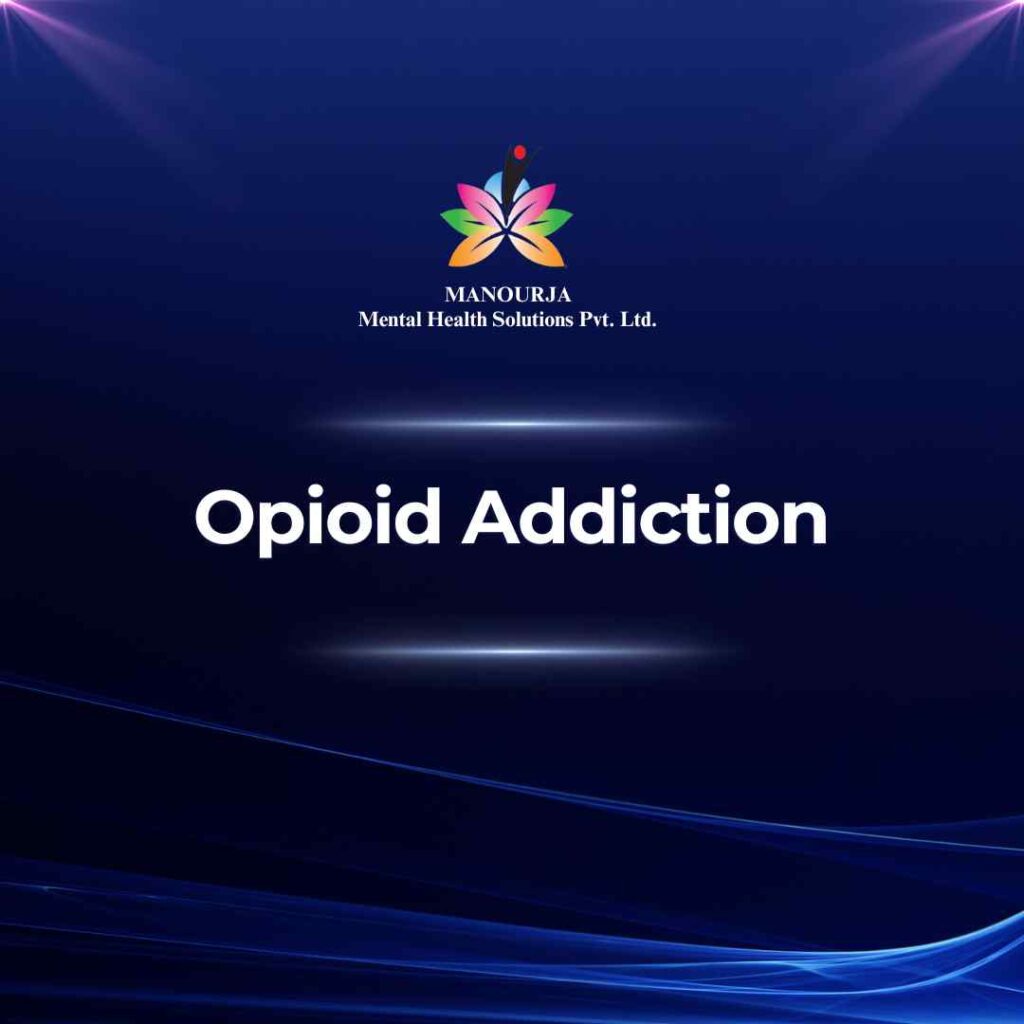Opioid Addiction

Opioid Addiction refers to a range of conditions stemming from the use and abuse of opioids, including prescription painkillers like oxycodone and hydrocodone, as well as illicit drugs like heroin.
Here’s a breakdown of the meaning and the hazards associated with opioid-related disorder across physical, psychological, and social aspects:
Meaning
Opioid Addiction encompasses a spectrum of conditions, including opioid use disorder (OUD) and opioid dependence. It involves a pattern of opioid use that leads to significant impairment or distress, characterized by the inability to control opioid use, cravings for opioids, and continued use despite negative consequences.
Physical Hazards
- Overdose: Opioids can depress the central nervous system, leading to respiratory depression and potentially fatal overdose.
- Tolerance and Dependence: Prolonged opioid use can result in tolerance, requiring higher doses to achieve the same effect, and physical dependence, leading to withdrawal symptoms when opioid use is reduced or stopped.
- Health Complications: Chronic opioid use can lead to various health issues, including constipation, hormonal imbalances, respiratory problems, and increased susceptibility to infections like HIV and hepatitis.
Psychological Hazards
- Addiction: Opioid use can lead to addiction, characterized by compulsive drug-seeking behavior despite negative consequences, loss of control over use, and cravings.
- Mental Health Disorders: Opioid use is associated with an increased risk of developing or exacerbating mental health disorders such as depression, anxiety, and post-traumatic stress disorder (PTSD).
- Cognitive Impairment: Chronic opioid use can impair cognitive function, including memory, attention, and decision-making abilities.
Social Hazards
- Stigmatization: Individuals with opioid-related disorder often face stigma and discrimination, which can hinder their access to healthcare and support services.
- Legal Issues: Illicit opioid use can result in legal consequences, including arrests, incarceration, and involvement with the criminal justice system.
- Social Isolation: Opioid use can lead to social withdrawal and strained relationships with family, friends, and colleagues, contributing to social isolation and loneliness.
- Financial Strain: Supporting a drug habit can lead to financial difficulties, including debt, unemployment, and homelessness.
Addressing Opioid Addiction requires a comprehensive approach that includes prevention, education, harm reduction, access to evidence-based treatment, and support services for individuals and communities affected by opioid use.
At MANOURJA, we believe in the transformative power of counseling. Our experienced therapists offer a safe and supportive space where you can explore your thoughts, emotions, and challenges. Through personalized counselling sessions, we’ll work together to develop coping strategies, build resilience, and achieve lasting positive change. Discover the path to a healthier, happier you with MANOURJA counselling services.
MANOURJA Rehabilitation Services
At MANOURJA, we’re dedicated to helping you in rebuild your life, after difficult times. Our rehabilitation services focus on understanding what you need to move forward, whether you’re recovering from addiction, trauma, or any psychological – social challenges. We create personalized plans, that are all about helping you, regain your strength and find hope again. With a caring team by your side, you’ll have the support to make real progress and take steps toward a brighter, healthier future
